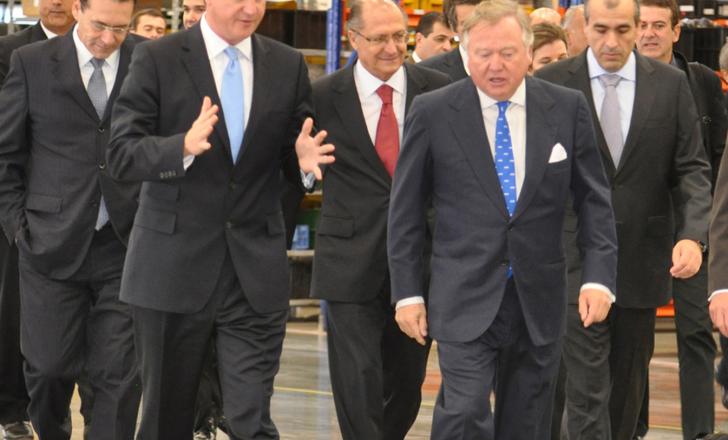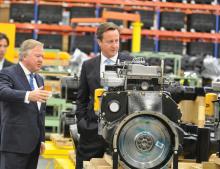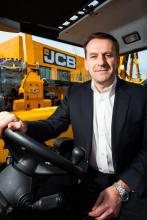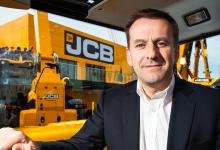JCB’s new US$100 million factory in Brazil has been officially opened as the company strengthens its position in rapidly-expanding Latin American markets. At full capacity, the new plant will have the capability to produce 10,000 machines a year, and it replaces two smaller plants in Sorocaba, São Paulo State, the first of which JCB opened in 2001 to produce backhoe loaders and the second in 2010 to produce tracked excavators.

Prime Minister David Cameron and JCB chairman Sir Anthony Bamford lead a VIP delegation through JCB Brazil's new factory
At full capacity, the new plant will have the capability to produce 10,000 machines a year, and it replaces two smaller plants in Sorocaba, São Paulo State, the first of which JCB opened in 2001 to produce backhoe loaders and the second in 2010 to produce tracked excavators.
At $100 million, the new factory is one of the biggest single investments in JCB’s 67-year history.
The new plant was opened by British Prime Minister David Cameron during a trade mission to Brazil, and he was given an insight into the processes involved in the production of backhoe loaders, tracked excavators, wheel loading shovels, Loadall telescopic handlers and compaction equipment which the factory will manufacture.
He was shown around the plant by JCB chairman Sir Anthony Bamford and JCB Brazil managing director Carlos Hernandez. He also met many of the plant’s 200 employees.
“JCB's expansion in Brazil shows how British companies can capitalise on the opportunities for growth in Brazil, creating new opportunities in JCB factories in [County] Derbyshire [England] and Wales,” said the Prime Minister.
Speaking in Brazil, Sir Anthony said: “South America represents a huge opportunity for growth for JCB and our investment in a new factory is critical to building on the success we already enjoy in this important market.
“There are £20 billion worth (US$32.45 billion) of infrastructure improvements scheduled in Brazil and JCB’s new factory will enable us to capitalise on those projects, including the 2014 World Cup and 2016 Olympic Games.
“JCB’s decision to invest is a big vote of confidence in the Brazilian economy and was driven by the excellent long-term growth opportunities both here and in Latin America. Our investment will also have a positive impact on the UK economy because at full capacity, the Brazilian plant will import £100 million ($162 million) of components annually from the UK including engines and transmissions.”







